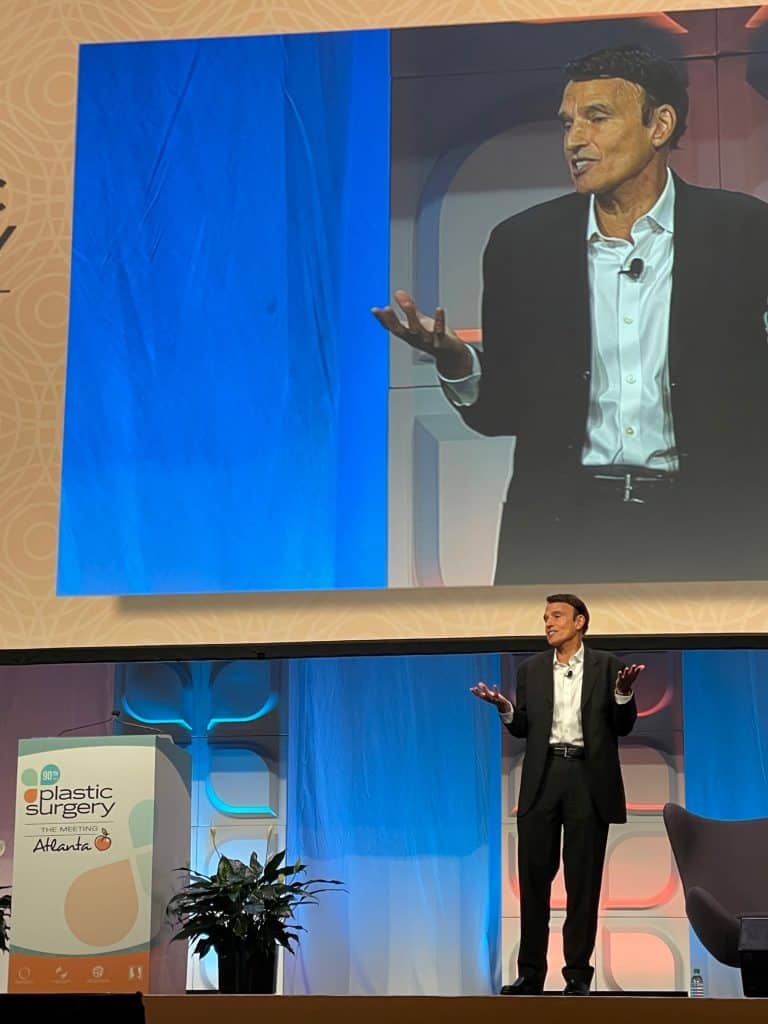Before I was a professor at the Stanford University Graduate School of Business or CEO at The Permanente Medical Group (Kaiser Permanente), I was a very proud, busy and highly satisfied plastic and reconstructive surgeon.
Plastic surgery has for decades stood on the vanguard of medical research and innovation, pioneered by iconic figures who loom large over the specialty. Harry Buncke was at the forefront of microsurgery, Paul Tessier craniofacial surgery, and William Littler and Robert Chase hand surgery to name but a few. In addition to innovation, hundreds of plastic surgeons each year make it a priority to volunteer their time and expertise oversees—providing free surgeries to children in poorer nations. Every physician I know who returned from one of these trips came back energized and filled with a renewed sense of purpose.
I remain very proud of my chosen specialty and my colleagues around the world.
This weekend in Atlanta, I attended the annual meeting of The American Society of Plastic Surgeons (ASPS) where I had the opportunity to present a keynote address titled, “The Future of Plastic Surgery in the Post-Coronavirus Era.” This was the first in-person meeting since the start of the pandemic and the level of excitement among colleagues was palpable.
 My talk focused on the coronavirus pandemic as a seminal event that has begun to change the rules of American society and healthcare—often in ways that couldn’t have been imagined before.
My talk focused on the coronavirus pandemic as a seminal event that has begun to change the rules of American society and healthcare—often in ways that couldn’t have been imagined before.
As an example, many business leaders who’d long accepted as a rule that employees need to sit in an office to do their work have since become eager champions of “working from home.” And the idea that important business meetings require flights, hotels and rental cars has been update to include Zoom as a much more cost-effective alternative.
This pandemic has challenged many of the longstanding norms, rules and customs in healthcare, as well. In my talk, I spoke about the incredible rise of telehealth amid the sudden absence of in-person care. I pointed out the follies of healthcare’s current payment system, fee for service, which rewards doctors for delivering more care to patients rather than better care. And I noted the conspicuous absence of physicians in leadership roles at hospitals and health systems across the country—truly one of medicine’s oddest norms.
But in addition to spotlighting our industry’s quirks and curiosities, the pandemic has also created the conditions necessary for change. As businesses and governments struggle to keep their heads above water in this down economy, the pressure placed on healthcare is apparent. It seems everyone is being forced to consider how to deliver care more efficiently and effectively. And in that context, I predict that many more norms, rules and customs in medicine will fall by the wayside.
In the future, the healthcare industry will need to better reflect our changing society. It will need to be more diverse, more global, more virtual and more consumer driven. I encouraged the audience at Plastic Surgery The Meeting (PSTM21) to lead the change process, even though it will be uncomfortable and even painful for many. I hope they take the lead because if healthcare professionals don’t step to the forefront, others will, and I fear that their solutions won’t be as positive for doctors or patients as they should.
In the coming months, I’ll be writing and speaking much more about the healthcare rules that need to be broken. If you’d like to follow along and contribute to this important discussion, I encourage you to signup for my monthly newsletter.
The American Society of Plastic Surgeons (ASPS) was founded in 1931 and is the largest plastic surgery organization in the world. Members are all certified by the American Board of Plastic Surgery or the Royal College of Physicians and Surgeons of Canada. It has over 8,000 members and 94% of board-certified plastic surgeons in the U.S.
Outgoing society president Dr. Joseph Losee, who kindly introduced my keynote talk, was recognized at this year’s annual meeting for his visionary leadership. I also had the privilege to attend a recognition event for Dr. Rod Rohrich, the outgoing editor-in-chief of Plastic and Reconstructive Surgery. This was the 75th anniversary of the publication, which is part of ASPS and the most highly rated plastic surgery journal in the world. Dr. Rohrich introduced myriad innovations as editor, including color photos, video links, evidence-based ratings of each recommendation and division of each volume of the journal by clinical and research areas.
The culture of medicine, which we physicians begin to acquire in medical school and go on to carry throughout our careers, can be both a destructive and constructive force. It has made heroes of many doctors but has also filled many physicians with shame and regret. Culture has both advanced medical science and held back progress. I enjoyed being with thousands of my colleagues at the PSTM21 this weekend and hearing about their remarkable successes. Those moments highlighted the positive side of the medical culture, its power to save lives and advance medicine for the benefit of all. What exists today isn’t perfect, but it can serve as a strong foundation for what is needed in the future.
* * *
Dr. Robert Pearl is the former CEO of The Permanente Medical Group, the nation’s largest physician group. He’s a Forbes contributor, bestselling author, Stanford University professor, and host of two healthcare podcasts. Pearl’s newest book, “Uncaring: How the Culture of Medicine Kills Doctors & Patients,” is available now. Follow him on Twitter @RobertPearlMD.






